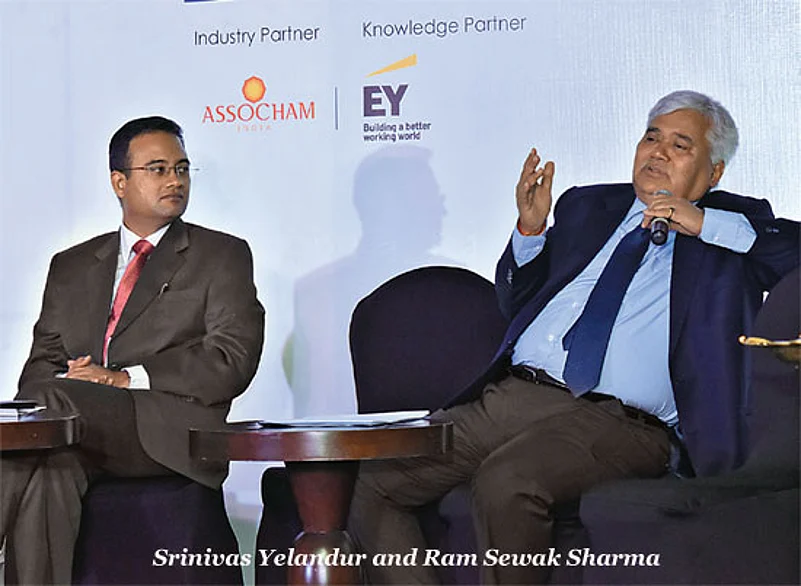The session started with Srinivas Yelandur, Director, Digital Advisory Services, EY LLP, detailing the impact of digitisation on the financial technology sector. He explained how despite the archaic systems and regulations, financial tehnology companies have been at the centre of disruption and innovation in the financial services space. He gave the examples of banks, insurers and other financial service providers adopting digital technology by moving from systems and enterprise model to mobile-first approach.
He felt that digital wallets have changed the way one transacts. “Payment platforms and payment banks will play a very important role because they are both going to drive the GDP. The move towards a cashless economy will create financial inclusion,” he said. He cited the example of how m-pesa and Paytm are providing everything in the digital world to thousands of customers. He felt the value provided by Fintech companies across demography in India is enhancing customer convenience.

Quoting a global survey by Ernst & Young, he said 15-17 per cent of digitally active customers have used payments, wallets or digital products, at least two of them, in the last six months. “Regulators and the RBI is creating favourable policies towards a digital economy,” he stressed.
Not everything about Fintech is rosy and Yelandur talked about the challenges that are coming up in the digital space because of new technologies. He explained how, unlike the west, especially the US, where there is a strong digital signature like social security number, India is still crippling with a lot of challenges.
He argued how in the absence of a single digital identity, it was difficult to integrate and create customer insights due to which a bank cannot assess the credit worthiness of an individual. He summed up by cautioning about the need for checks and balances between risk and innovation, as we move into a fast-paced digital economy.
More from Digital Dialogues, Bengaluru:













